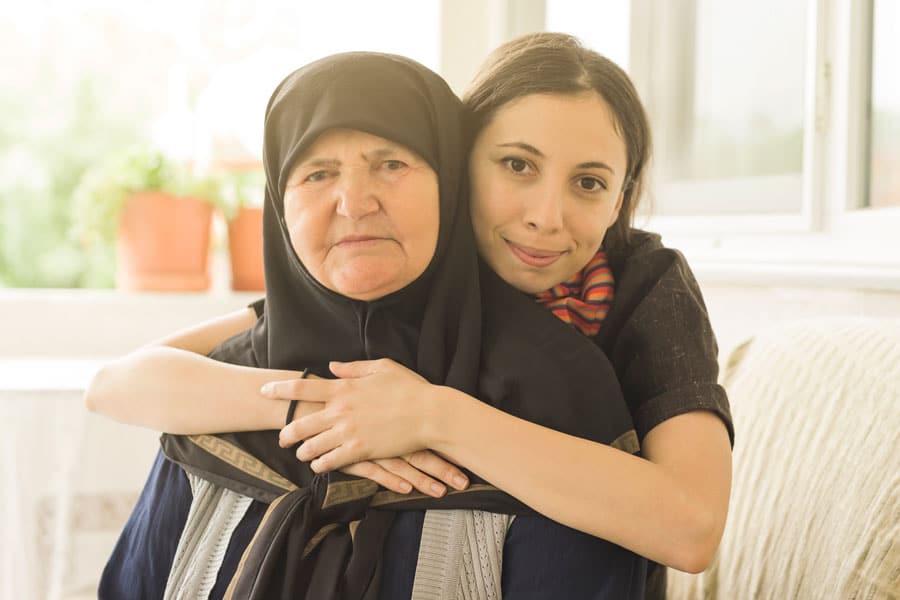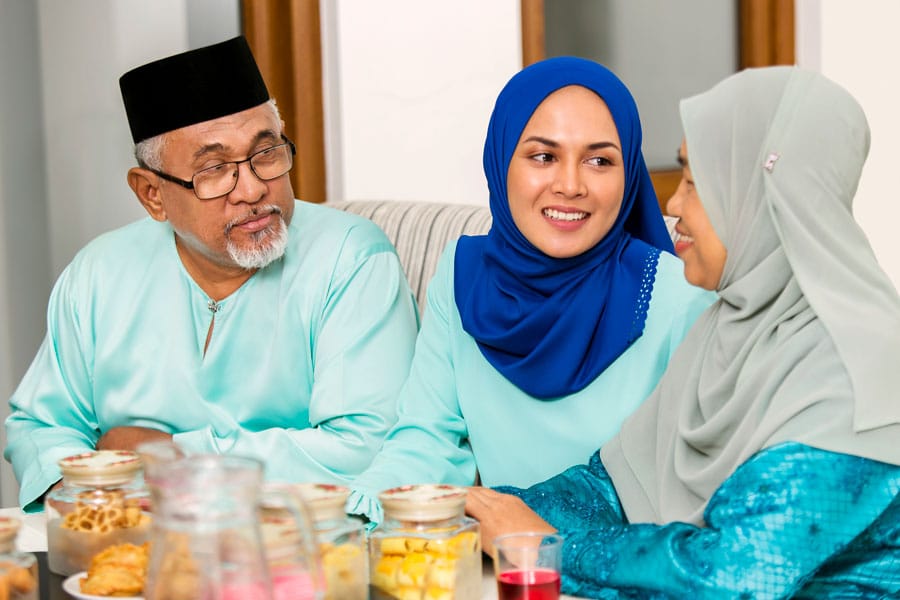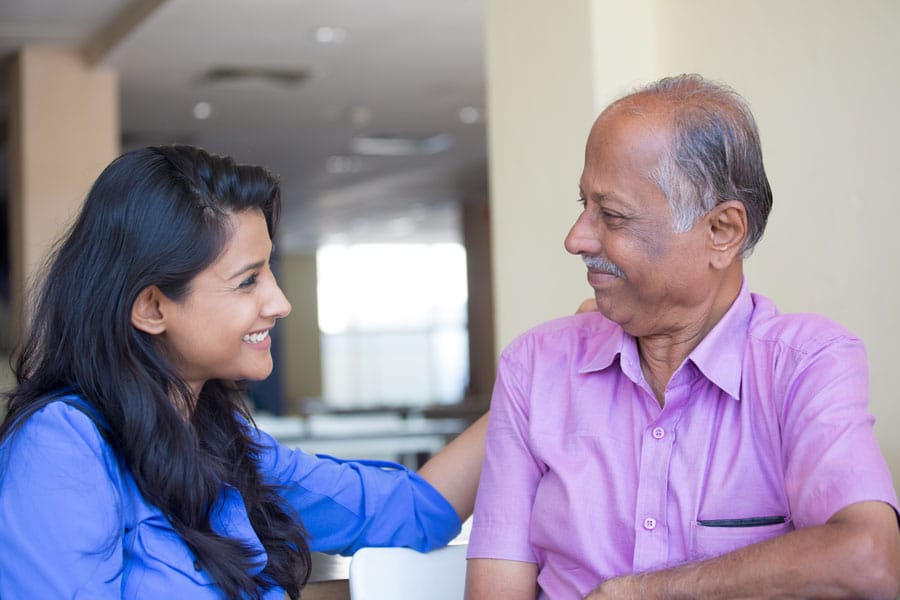Unveiling Muslim Voices: Fostering a culture of understanding
In many developed nations across the world, people are living longer. Today, 125 million people are aged 80 years or older. The WHO estimates that by 2050, the world’s population aged 60 years and older will total 2 billion, up from 900 million in 2015. In the U.S., those aged 65 and older is 52 million (2018). This is estimated to almost double to 95 million by 2060, increasing this age group’s share of the total population from 16% to 23%. With advancing age comes increasing vulnerability to chronic health conditions (diabetes, coronary artery disease), disabilities (rheumatoid arthritis, hearing and visual impairments) and cognitive impairments (Alzheimer’s and other forms of dementia), as well as increased dependency on family caregivers or out-of-home supports.
Many studies in gerontology (study of old age and the ageing process) have looked into caregiving issues among the elderly U.S. population. However, few have considered the particular challenges Muslim families face when caring for an elderly relative, or that these challenges are augmented when society is inadequately prepared to deal with Muslims’ cultural and religious needs.

This is a topic Dr Rooshey Hasnain set out to explore. She is examining the social and cultural challenges adult Muslim children face in caring for their ageing relatives in the U.S., in order to pinpoint solutions that can meet these challenges. In their recently published work ‘Unveiling Muslim Voices,’ Dr Hasnain and Muslim elder care expert Mr Mohammad Shoab Rana reviewed and analysed the caregiving needs, strengths and challenges of ageing Muslim immigrants with disabilities. The researchers also explored how family caregivers (usually adult children) navigate supporting these elders while also responding to the demands of modern life.
The U.S. is one of the most culturally diverse nations in the world, with just over 14% of the population made up of immigrants.
In the U.S., one of the most culturally and linguistically diverse nations in the world, just over 14% of the population are immigrants. The exact numbers of Muslim immigrants in the country is unknown because the U.S. Census does not collect information on ethnicity or religion, however the Pew Research Center estimates that about 1.1% of the population are Muslims (approx. 3.45 million). By 2050, this number is projected to reach 8.1 million, or 2.1% of the nation’s total population. Those who arrived with the 1960s wave have become dependent in one way or another. The work by Dr Hasnain and Mr Rana focuses on these first-generation immigrants and their immediate descendants.

A family affair
For many Muslims, Islam is far more than a religion, it is a way of life, and one of its core values is reciprocal caregiving in the family. Putting a parent or relative in a nursing home isn’t a realistic option for many Muslim families, for Islam places strong emphasis on caring for parents at home, a responsibility that is lovingly and happily shared among the whole family. But, as Dr Hasnain points out, adhering to one’s faith in a society completely different from one’s own comes with unique challenges for both elderly parents and family caregivers.
According to Dr Hasnain, the tendency of many elderly Muslims in the U.S. to cling to their traditional beliefs and expectations can cause difficulties in their healthcare or rehabilitation needs such as resistance to treatment. She highlights the case of a cancer patient in California who died as a result of misunderstandings that contributed to his resistance to have chemotherapy, for he feared it would interfere with his ability to fulfil his pray obligations. In another case, a man did not recognise his wife’s dementia as an illness, but rather interpreted it as a punishment for a misdeed earlier in her life.

Other studies have found that many elderly Muslims believe that Allah (God) controls their health, illness, and ultimate fate, so although they may accept a doctor’s diagnosis, ultimately, it’s God’s will that determines whether or not they live a healthy, productive, and meaningful life. Increasing social pressures and the rising costs of living have given rise to other challenges to providing care in the home, with both adults in a household required to work, even moving to different states or countries for better job prospects.
This dissipates the core family support network integral to Islam’s values on caregiving and creates a stressful situation for the caregiver. As Dr Hasnain points out, the caregiver is most likely to be a woman with children and a job. The tendency for the family caregiver to be a woman stems from the powerful parent-daughter bond in Muslim families, which creates a strong feeling of filial obligation and makes daughters or sons responsible for the care of ageing parents. In other families, elder care rests with a mix of other family members (e.g., grandchildren, cousins, aunts, uncles) as well as family in-laws.
For many Muslims, Islam is a way of life, not just a religion, and one of its core values is the act of reciprocal caregiving
among the family.
An unwelcome environment
In most cases, despite the pressures involved in juggling jobs, children, and caring for one or more elderly relatives, Muslim family caregivers still regard residential care homes as a very last resort. Dr Hasnain explains that this reluctance is not solely attributable to Islam’s values about reciprocal caregiving, but is also due to general ignorance in the U.S. healthcare system about the particular needs of Muslims or ageing care sector. These include provision of meals that conform to dietary laws (halal), respect for privacy, and attention to personal modesty (for example, intimate care should be provided by someone of the same gender). Other issues, such as language barriers, lack of familiarity with technical medical terminology, lack of cultural programming/entertainment in residential settings, and the differences between bureaucratic and socially based structures of senior care, can also make it difficult for Muslim families to put their loved ones into long-term care facilities, even when the need is dire. In such cases, home life may become distressingly complicated for everyone and isolation may add to the problems experienced by the elderly.

What can be done to alleviate these pressures? Dr Hasnain argues that a broad-based needs assessment should be undertaken on the ageing Muslim communities in the U.S. The data yielded by such an assessment could be used to begin crafting solutions to the challenges of Muslim elder care. One key approach would be cultural brokering, which would mean bridging or mediating among groups of Muslims from different backgrounds in order to frame solutions to common problems. In this context, open, collaborative dialogue among elders, caregivers, and healthcare/rehabilitation professionals, as well as across diverse grassroots Muslim communities, would be essential. Healthcare providers would thus be made aware of and sensitive to Muslim practices and preferences, and care settings could then be improved with training for staff about Muslim cultural, dietary, and religious requirements (for example, the availability of private prayer rooms).

Dr Hasnain’s work supplies necessary information about the needs of Muslim family caregivers and immigrant seniors living with disabilities. More research of this type is vital for effective culturally appropriate interventions to be designed and implemented. The culture of understanding in the U.S. care sector must improve, based on an openness and willingness to learn and act so that ageing Muslims with disabilities and their family caregivers can have a better quality of life.
UIC’s Rooshey Hasnain, clinical assistant professor of disability and human development, is quoted in a NBC News story. Read the story online: https://nbcnews.to/2mbZ5S7.

Case study #3. From Hasnain & Rana, 2010.
Mr and Mrs Noor migrated to the U.S. from Pakistan more than 20 years ago. Although they have five children, they opted to live with their youngest son and his family. As long as Mr and Mrs Noor remained healthy, they enjoyed caring for their grandchildren and their presence was very enriching for the entire family. But as the couple grew older and their health began to decline, the additional challenge of caring for them created stress for the son and his family. However, the son’s strong Muslim beliefs would not let him consider any other arrangement such as assisted care or nursing home. Several years ago, the elderly father, Mr Noor, passed away and Mrs Noor began to develop Alzheimer’s disease: her illness has recently worsened to the point that she cannot function independently.
As the family started considering their options, they were frustrated at the difficulty of finding appropriate information. When Mrs Noor was referred to the local senior care facility, the son found that the caregivers and nursing staff were not sensitive to some of their Muslim beliefs and needs. For example, they had no interpreter services and their strict rules limited family visits. They were not sensitive to the fact that an elderly Muslim woman might prefer a female rather than a male care provider. Moreover, the differences in the languages spoken, food served, and cultural and social perspectives surfaced very quickly. The family decided that they simply could not have their mother in such a situation. As a result, they brought her back home and are still looking for a solution.
The lack of culturally competent elderly care services is further complicated by the lack of community resources and information regarding ways to bridge the cultural and generational gap that such families face. In a second case study, the Khan family decided to start a national network for Muslim families facing elderly care issues so that they can benefit in practical solutions. This example shows that it is important to understand the situation for Muslim families based on their unique family history in terms of values, status, and roles among individuals in the family.
Personal Response
Why is there a lack of research into the experiences of Muslim families caring for an elderly relative in the U.S.?
Racism, discrimination (i.e. as a result of Islamophobia), and false narratives towards immigrant Muslims continues to be a problem in all parts of the world, including the U.S. This reality leads to a research and activism gap. In fact, the intersection of family caregiving and U.S. Muslim seniors with chronic health conditions, disabilities, and mental health issues, especially among those of Asian or Arab descent, has received little research attention. The rationale for focusing on Muslim seniors and family caregivers is that they are one of the largest and most underserved immigrant communities in Illinois and several other states.
Given the increasing population of Muslim families, we need research on ageing with disability through targeted outreach, coalition-building, and grassroots advocacy. We should integrate cultural and language supports that promote social well-being, expanded personal networks, and productive ageing for this population.